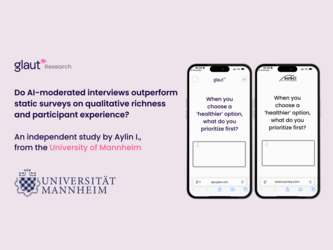The convergence of marketing and research
We have witnessed the rise of the ‘transformational marketer’ – where the marketing role has shifted from a distributor of positioning statements and messages to owning and driving customer experience across an organisation.
With this, the traditional CMO role is blossoming into more of a chief experience officer, evolving marketing campaigns into experience insights programmes that speak to the needs of the customer and make emotional connections that foster affinity and loyalty.
The experience economy is an equally exciting time for research/insights departments, who hold the key to understanding the hearts and minds of customers – why they think, feel, and act the way they do. That’s the ideal. But the reality still seems to fall short, with these two groups not always coming together in the most fruitful manner.
A little under a year ago, our new CMO joined the company and brought a series of strategic and structural changes, including folding my research team into the marketing team, while I became her direct report. Our journey in working together certainly brought twists and turns, but ultimately it has made me stronger in my role as a researcher guiding the organisation.
I learned that we share challenges. For example, marketers are grappling with the explosion of martech in the same way that researchers are dealing with the influx of new research technology. Similarly, speed is a joint nemesis. Today’s real-time environment has vastly accelerated marketing’s response time, and researchers are all too familiar with the faster refrain, generally accompanied with ‘better’ and ‘cheaper’.
There are also notable differences. Marketers operate in a much more fluid, directional world than researchers. For them, a shift of .1 is considered noteworthy, while for a researcher that’s somewhat of an affront. Marketers have intense pressures, arising from all sides of the business, and are continually questioned on whether they are delivering the promised ROI and KPIs. Researchers, often by the situation, focus first and foremost on the study at hand with the bigger picture an important but secondary consideration.
How do we take these similarities and differences and capitalise upon them? After all, our end goal is the same – to understand the customer and deliver outstanding experiences that drive the brand forward. For myself and my CMO it was a three-step process:
- Translate: We needed to learn and understand one another’s language, objectives, constraints, and flexibilities. In short, we needed to learn each other’s world. For me, I needed to learn about transformational marketing – it’s complex, there’s a lot of new terms, processes and viewpoints. I also entered strategic conversations to understand the overarching objective and corresponding KPIs to be delivered upon.
- Collaborate: Once we began to understand each other’s world, we were able to transition into a working relationship that proved to be both complementary and effective as we began truly collaborating. My CMO slowed down and took the time to gather necessary insights, while I worked to speed up, at times pare down and always keep the overarching objectives at the forefront.
- Iterate: We (grudgingly) embraced the fact that you are not going to get it all right in the first go. One study is not going to tell you all you need to know about your customer and one advertisement or piece of content is not going to engage them. So, we put an interactive research process in place, one where each new study builds on what we’ve learned previously, or indeed questions whether the knowledge is still valid.
If it is the researchers’ job to understand people and the marketers’ job to get buyers to respond, it makes sense that the dual lens of marketing and research is the winning combination.
Just as the transformational marketer is driving change across the business, the transformational researcher has an elevated role to play – to embrace that voice, be the bridge between departments and between the organisation and its customers.
Zoe Dowling is senior vice-president of research at FocusVision

We hope you enjoyed this article.
Research Live is published by MRS.
The Market Research Society (MRS) exists to promote and protect the research sector, showcasing how research delivers impact for businesses and government.
Members of MRS enjoy many benefits including tailoured policy guidance, discounts on training and conferences, and access to member-only content.
For example, there's an archive of winning case studies from over a decade of MRS Awards.
Find out more about the benefits of joining MRS here.













0 Comments